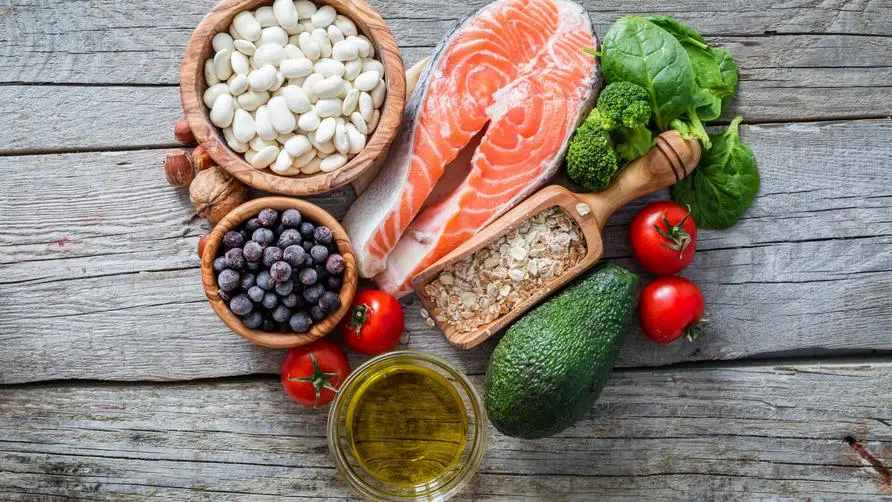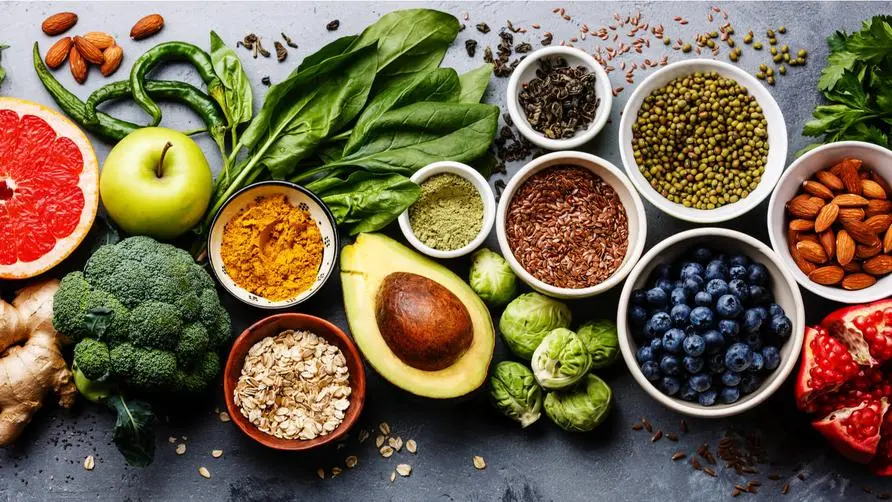Can eating chocolate and drinking green tea reduce heart disease and promote blood flow to the brain? Experts reveal the top 6 "heart-protecting foods"

Reduce cardiovascular disease by 31%! Experts reveal list of 6 heart-healthy foods
Whether your heart is healthy or not has a lot to do with what you eat! According to data from Harvard University’s TH CHEN School of Public Health, the best dietary pattern to help prevent cardiovascular disease is to eat more fruits, vegetables, whole grains, fish, poultry and vegetable oils. Instead, limit your intake of red and processed meats, and eat less refined carbohydrates, processed foods with added sugar and sodium, and trans fats.
Scientific evidence shows that cholesterol is an important factor affecting cardiovascular health. In daily life, diet is closely related to blood cholesterol concentration. Some foods are pointed out to be helpful in reducing cholesterol absorption and lowering low-density lipoprotein cholesterol (LDL). Also helps increase the protective effect of high-density lipoprotein cholesterol (HDL).
A randomized controlled trial (RCT) also found that adopting a “Mediterranean diet” combined with polyunsaturated fatty acid intake can reduce the incidence of cardiovascular events in patients with cardiovascular disease. Overall, the benefits of adopting a healthy eating pattern include a 31% lower risk of heart disease, a 33% lower risk of diabetes, and a 20% lower risk of stroke. To promote cardiovascular health, it is recommended to include the following ingredients in your daily diet:
Fish rich in Omega3 fatty acids: Deep-sea fish such as salmon, sardines, and herring contain natural fish oil, which is considered to reduce the risk of cardiovascular disease. In addition, healthy protein sources also have the benefit of promoting cardiovascular health. The American Heart Association recommends eating more fish and seafood instead of red meat, and replacing full-fat dairy products with low-fat or skim dairy products.
Olive oil: Substituting unsaturated fats for animal saturated fats when cooking can help reduce total cholesterol levels. It is recommended to choose special cold-pressed olive oil or rapeseed oil. According to the American Heart Association, polyunsaturated fatty acids have a protective effect on heart health. Their dietary sources are mainly found in vegetable oils, such as soybeans, corn, sunflower oil, walnuts and flaxseeds.
Whole grains and high-fiber foods: Whole wheat, flax seeds, fruits and vegetables have high fiber content. Dietary fiber can reduce low-density cholesterol and “bad cholesterol”. Some studies have also found that water-soluble fiber can reduce intestinal absorption of cholesterol. efficiency. Overall, a diet based on fruits and vegetables can reduce the risk of cardiovascular disease. The American Heart Association specifically recommends eating more dark-colored fruits and vegetables and getting enough essential nutrients and phytochemicals.
Plant sterols: Natural plant sterols are found in vegetables, fruits, beans and yogurt. Plant sterols and stanols can reduce the absorption of cholesterol in the blood, thereby reducing low-density lipoprotein in the blood. content of compounds thought to be beneficial to cardiovascular health.
Nuts: Nuts such as walnuts, almonds, walnuts, etc., in addition to providing the body with rich calories, also contain a large amount of Omega3 fatty acids. Omega3 fatty acids can reduce low-density cholesterol in the body, reduce blood clots, wind and arteriosclerosis, and have many benefits for cardiovascular health. . Relevant studies have pointed out that higher nut intake is related to lower rates of cardiovascular disease and stroke.
Chocolate and green tea: Multiple studies have found that dark chocolate and green tea contain “flavonoids”, which are natural phytochemicals and powerful antioxidants that can protect heart cells and blood vessels, and Reduce the aging rate. In addition, dark chocolate contains cocoa flavonol, which can reduce platelet aggregation and is thought to promote blood flow in the blood vessels of the brain.
A plant-based diet is good for heart health and it is not recommended to replace natural foods with supplements
The American Heart Association points out that to maintain heart health, it is recommended to adopt a diet based on plant-based foods, including eating more vegetables, fruits, whole grains, nuts, and legumes, as well as eating more dietary fiber. , has also been shown to reduce the risk of metabolic syndrome and cardiovascular disease. At the same time, eating more healthy foods such as vegetables and fruits can increase the intake of potassium ions. Potassium is an important component in regulating blood pressure. An appropriate amount of potassium can reduce high blood pressure and heart disease problems.
However, the cardiovascular benefits of nutrients such as dietary fiber, potassium, and phytochemicals all come from the natural diet. Currently, there is no clear scientific evidence on the effects of nutritional supplements such as vitamins and minerals on cardiovascular disease. These nutritional supplements are not recommended as a substitute for a healthy diet. However, people with nutritional deficiencies or special life stages (such as vegetarians, the elderly) may need separate nutritional supplements, and the diagnosis and prescription of clinicians should be based on them.
Source:
Rrbecca J. Donatelle, Health Promotion, 12-12-12-13
Further reading:





